
» Renewable energies as solution to confront oil sanctions
The editorial of Tejarat online deals with significance of renewable energies for Iran, given the current conditions of the country.
The editorial mentions Italian ambassador who in his meeting with Iranian energy minister expressed hope that a document with regard to renewable energies will soon be signed by Iran and Italy. Italian ambassador also announced that early this summer, seven big Italian countries will go to Iran for holding a joint seminar on renewable energy with Iran’s Renewable Energy Organization.
The editorial then focuses on recent initiatives of Saudi Arabia with respect to renewable energy projects – particularly solar power plants worth $7 billion. Saudis, as biggest exporters of oil in the world, are after providing their domestic energy demands with renewable energies so that they can export more oil and reduce their dependency on oil in future. That is why they are after creating 905 megawatts of solar and wind energy in the next five years.
The editorial continues: it has been several years that using such energies have been paid attention to, but nothing much has been done in this regard. If officials had paid attention to this issue, it could have been very beneficial for Iran, as oil reserves will one day come to an end. If Iranian officials, the editorialist holds, act negligently or hesitate, it will cause a great loss in future. Even a look at the current conditions in Iran after return of oil sanctions and water crisis will help one to realize the importance of renewable energies for the country.
Tejarat online
» Iranians no longer believe in reform
This editorial urges that Iran’s reform movement has diminished, particularly in the eyes of the country’s younger generation.
The editorialist first refers to a recent article by Saeed Hajjarian, the strategist of Iran’s reform movement in 1997. In his article, Hajjarian supports reform movement, saying it is still alive and desired by people. The editorialist, however, believes that reformism in Iran has come to an end, not even remembered by many.
The editorialist says that Hajjarian is no longer a key figure in Iran. This prominent reformist, who was once paralyzed after being shot in the head in 2000 during a failed assassination attempt, is not taken seriously by the movement these days. Iran’s younger generation do not know him either, as their concerns and desires have changed over time.
The editorialist concludes his piece by saying that the reform movement, which started with the election of Mohammad Khatami into office in 1997, has become just an era in history. Iranian youth no longer even care about last year’s presidential election in which Hassan Rouhani was elected. What they want is to have an ordinary life, neither less nor more.
Ebtekar daily
»Iran-Qatar competition in South Pars gas field
This editorial focuses on Iran’s South Pars gas field and the future of energy market following the U.S. withdrawal from the JCPOA.
Iran and Qatar have been sharing the world’s largest gas field, South Pars, for years. Yet, according to this editorial, Qatar’s output from this field has been much more than that of Iran in recent years. France’s Total, which was once a contractor for the development of South Pars Phase 11, had to quit the project due to sanctions. The same thing might happen now that the U.S. has left the JCPOA. However, Iran’s foreign and oil ministers are currently negotiating with Europeans to prevent them from pulling out of the JCPOA, hence avoid losing European companies like Total.
The editorialist continues that Iran has tried to increase its production at South Pars since 2013, recovering 1.24 billion cubic meters of natural gas from there so far. Iran was successful in scaling up its daily production of natural gas from 50% to 100% in four years (2013-2017), overtaking Qatar.
While such statistics are promising, it should also be noted that Qatar has exploited gas from South Pars 4 to 5 times more than Iran in recent years. Therefore, concludes the editorialist, Iran needs to take its competition with Qatar more seriously or it might have to cede the entire energy market to Qatar in near future.
Tejarat online
» Iran-Europe Negotiations doomed to failure
This editorial elaborates on the reasons why Iran’s current negotiations with Europe would head towards failure.
Ensuing the U.S. exit from the JCPOA, some European countries announced they would adhere to the nuclear deal, begins the editorialist. However, given the Europe’s policies towards Iran in the past 40 years, Iran cannot enjoy any benefits from its ongoing negotiations with Europeans.
The editorialist then enumerates his reasons in this regards: First, Europe has extensive economic and strategic relations with the U.S., incomparable with their trade with Iran. Second, Europeans view Iran as a country from which they can gain one-sided benefits, especially after the Islamic revolution. It should not be forgotten that during Iran-Iraq war, French Mirages and German chemical weapons were used against Iran.
The third reason is Europeans’ capabilities, which according to this editorial, wanes as far as the U.S. is involved. For instance, the French President has already stated he cannot do anything regarding European companies’ exit from Iran after the JCPOA termination. The same goes for German companies. Last but not least, Europeans have repeatedly expressed their disapproval of Iran’s missile program as well as its regional presence.
The editorialist closes by claiming that Europeans, like Americans, cannot be trusted as they will sooner or later unmask their enmity towards Iran.
Asr-e Iranian
» JCPOA and oil market
The editorial of Shorou newspaper deals with consequences of the U.S. pulling out of the JCPOA on the global oil market.
The editorial asserts that ensuing the U.S. withdrawing from the nuclear deal [JCPOA], the supposition in global oil market was that Iran’s oil export will gradually decrease, and the market’s demand will result in increase in oil price in the global market. Before the U.S. withdrawal, the oil price in the world market was on the rise, due to relative increase in world’s market demand, as well as uncertainty with regard to the fate of the JCPOA.
The editorial continues: the continuation of this condition so much depends on EU’s actions. In Europe, private companies are in charge of affairs, and they are after protecting their own and their shareholders’ interests. Many European banks and companies had previously been punished by secondary sanctions, as they have different common interests with the U.S. As a result, if EU and member governments cannot find a way to prevent enforcement of secondary sanctions by the U.S., it is highly likely that European and even Asian companies will reduce their transactions with Iran.
The editorial says that the return of sanctions results in decrease in Iranian oil export and prices in the oil market keep rising, the agreement between OPEC and non-OPEC might be broken. Even though OPEC cannot officially give Iran’s share of oil production to other countries, this might happen in actuality. As for investment in Iranian oil industry that might impact the country’s oil production, European countries have not had any active, serious presence and were probably waiting to see what Donald Trump’s final decision would be. Therefore, no important development seems to take place in this regard.
The editorial concludes: what is unfortunate is that officials of oil ministry had suspended many measures that could have been done in other ways, hoping for the entrance of European countries. Now, there is not much they can do about it.
Shorou
» Rouhani government has no achievements!
The editorial of Vatan Emrooz newspaper takes a critical look at the performance of Hassan Rouhani’s government in both domestic and foreign affairs.
The editorial starts with pledges Hassan Rouhani made in 2013 presidential election – while running for his first term – with regard to foreign relations. At that time, the conditions in Iranian society were in such a way as if all problems in the country depended on foreign issues, and Iran needed someone well-acquainted with the international language and foreign diplomacy. Perhaps that was why people trusted someone who pretended to have the ability to negotiate and exercise diplomacy. It was then that Hassan Rouhani, who was called “diplomat sheikh” by reformist media who enthusiastically supported him, was elected to lead the country.
The editorial continues: Rouhani’s performance in his first term was not much acceptable, and apart from signing the nuclear deal, one can say that he ran for his second term without any serious achievements. He could gain 60% of votes and became president once again. Now one year into his second term of presidency, Rouhani and his supporters know that he has no clear, tangible achievement to talk about and celebrate.
Rouhani, the editorial adds, had hopes for creating economic openings in Iran after the nuclear deal, but with the U.S. pulling out of the JCPOA, that has turned into an allusion. According to Sputnik, after U.S. President Donald Trump announced withdrawing from the JCPOA, big companies like Total, Siemens, Airbus, Saga, and Maersk decided to pull out of Iran.
The editorial then focuses on poor performance of Rouhani’s government in domestic affairs. Many factories including Arj, Darugar, Azmayesh, Pars Electric, Irana Tile, etc. have been shut down, while the recession which has continued for several years still goes on.
The editorial ends: Rouhani’s hands are emptier than ever now because he trusted the Americans and the Europeans and closed the nuclear industry of the country. One of Rouhani’s slogans in his first election campaign was: centrifuges and people’s lives must both prosper at the same time. Right now, neither one is in good condition.
Vatan Emrooz
![]()
♦ Lawmaker: if JCPOA not implemented, we will enrich uranium to 20%
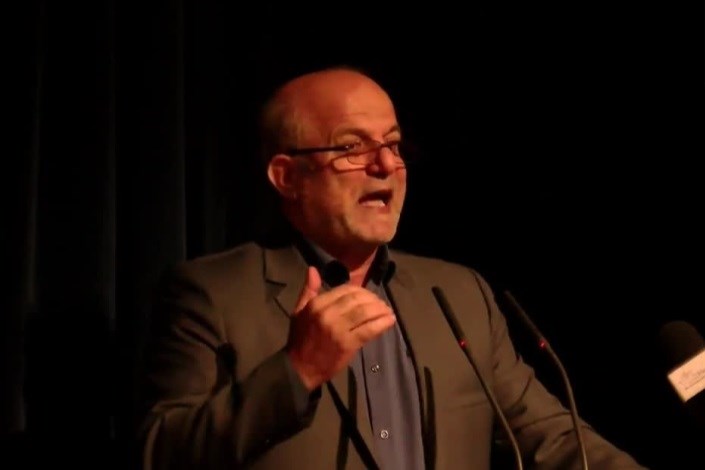
Member of National Security Commission in Parliament Valiollah Nanvakenari said with regard to negotiations with Europeans that if the nuclear deal (JCPOA) is not implemented, Iran will go back to the issue of 20% uranium enrichment. He added that if Europeans are committed to the JCPOA, the government will enforce ratifications with regard to the nuclear deal; however, if they fall short on Iran’s demands, the country will follow more powerful options.
He added that if Europeans do not yield any guarantees regarding JCPOA and remain under the U.S. pressure, Islamic Republic regime will certainly make new decisions and will retaliate.
ISCA news
♦ Special assistant to Iranian speaker of parliament underlines parliaments’ role in Iran-Egypt relations
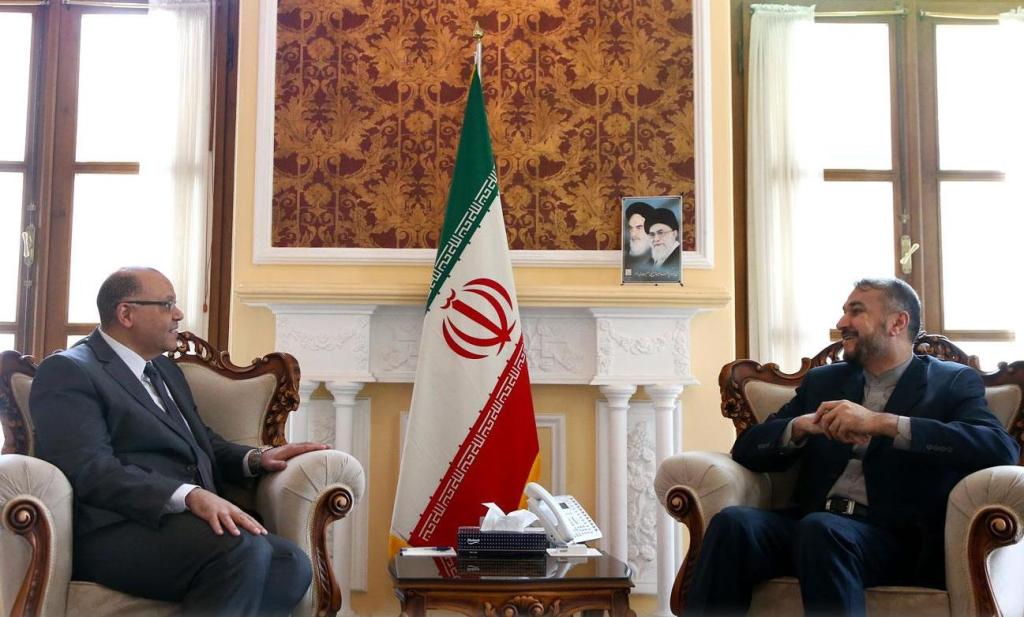
Hossein Amir Abdollahian, special assistant for the Iranian parliament’s speaker for international affairs, highlighted the role of parliamentary cooperation in Tehran-Cairo relationship in his meeting with Yasser Osman, head of Egyptian Interests Section in Tehran. In this meeting, latest regional and international developments, as well as issues of interest to both parties, were discussed.
Pointing out to the latest developments regarding Palestine and the recent summit of leaders of Islamic countries held in condemning Israel’s provocative measures, both sides underpinned rights of Palestinian people.
IRNA
♦ Political deputy to interior minister: No plan for creating new provinces
Pointing out to rumors as to creation of new provinces in country’s division, political deputy to interior minister announced this ministry has no such plans in its agenda. Esmaeel Jabarzadeh added that some people utter remarks about country divisions without considering regional sensitivities, which creates dissatisfactions and unrests.
In recent unrests in the city of Kazeroon, several people were killed, and many were wounded. People of Kazeroon have held many gatherings and demonstrations in protests against division in their city.
Shargh
♦ Salehi: We have started enriching stable isotopes with Russia’s help
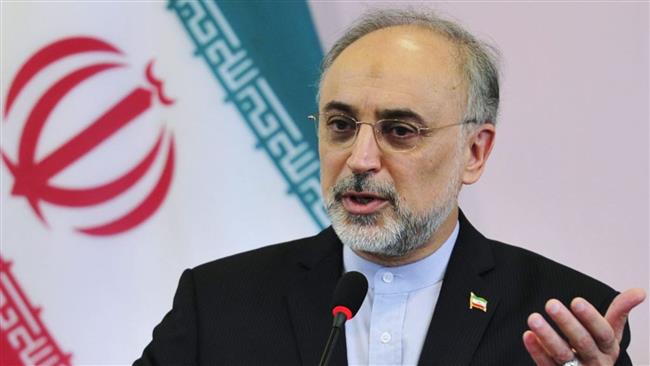
Head of Atomic Energy Organization of Iran, Ali Akbar Salehi, said after the JCPOA, Iran could start enriching stable isotopes with help of Russia. He added that before the JCPOA, Iran could only enrich uranium.
Salehi urged that Iran is ready to roll back to the conditions before the JCPOA, adding that “if we want to have developments in fields like enrichment and increase the production or level of enrichment, we are ready to do so.”
Following the U.S. pulling out of the JCPOA, Iran is negotiating with European countries about staying in the nuclear deal without the U.S.
IRNA
♦ US sanctions five Iranians
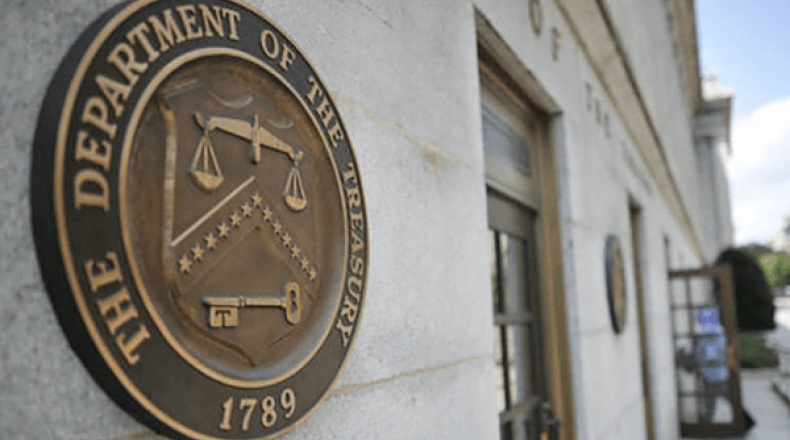
The U.S. hit five Iranian nationals with sanctions for their relations with IRGC missile unit. The sanctions target Mahmud Bagheri, Mohammad Agha Ja’fari, Javad Bordbar Shir Amin and Mehdi Azarpisheh for their roles in a plan by Tehran to supply the Houthi rebels in Yemen with ballistic missiles.
“Their actions have enabled the Houthis to launch missiles at Saudi cities and oil infrastructure [….] they have also disrupted humanitarian air efforts in Yemen and threatened freedom of navigation in key regional waterways,” Treasury Secretary Steven Mnuchin said.
Recently, the U.S. has sanctioned Valiollah Seif, Governor of the Central Bank, for transferring money for (IRGC) Quds Force, and the so-called “Islamic resistance” in Lebanon.
Asr Iran
♦ Oman’s commerce minister orders resolving problems of Iranian businessmen

Ali bin Masoud Al Sunaidi, Minister of Commerce and Industry of Oman, in his meeting with Iranian Ambassador to Oman Mohammadreza Noori Shahroodi, issued an order to resolve issues and challenges with regard to Iranian businessmen. In this meeting, aimed at boosting and promoting level of trade and commerce cooperation between the two countries, they discussed issues pertaining to 17th joint economic commission.
17th joint economic commission will be held in Muscat on June 27 and 28. One of the important issues to be discussed in this meeting will be signing an agreement for free trade between the two countries.
Previously, head of Iran-Oman Chamber of Commerce had said while Iranian businessmen cannot have economic activities in the Arab countries, Oman has created certain arrangements for Iranians including opening bank accounts and transferring money through Omani banks.
IRNA
Akharin Khabar
♦ Rouhani reacts to Pompeo’s speech
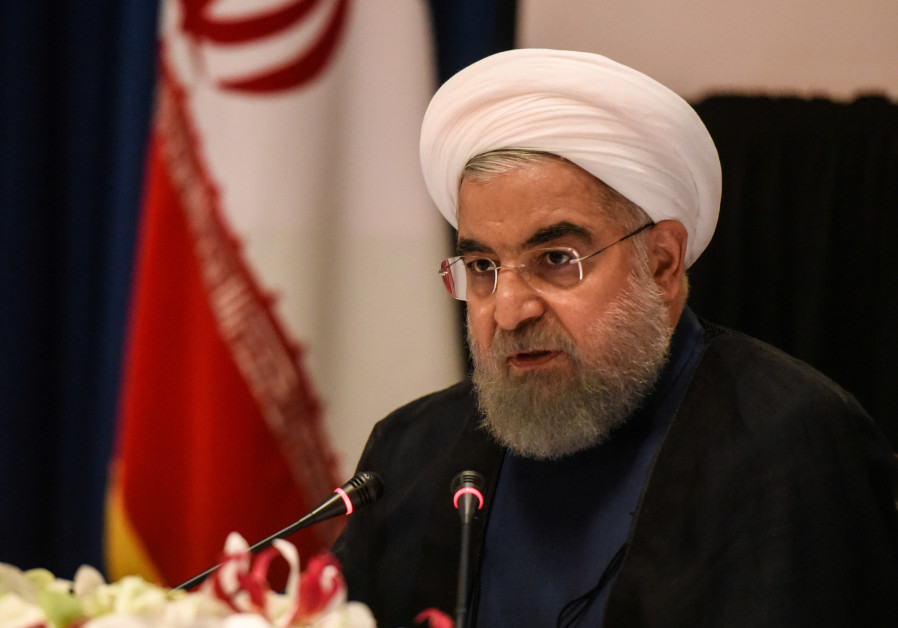
Iranian President Hassan Rouhani responded to the U.S. Secretary of State Mike Pompeo’s remarks against Iran, saying America cannot decide for Iran and the whole world. Pointing to the U.S. pulling out of the JCPOA, Rouhani said today there is an administration in the U.S. that took their country to 15 years ago overnight, and they are reiterating bellicose remarks of the U.S. officials in 2003 and 2004.
Rouhani said, with regard to Pompeo, that it is not acceptable that someone who was working in a spy agency wants to decide for Iran and other countries as U.S. secretary of state.
On Monday, U.S. Secretary of State Mike Pompeo called the nuclear deal with Iran flawed and accused Tehran of being deceitful about its nuclear program.
Pars Today
♦ New accusations against Nazanin Zaghari?
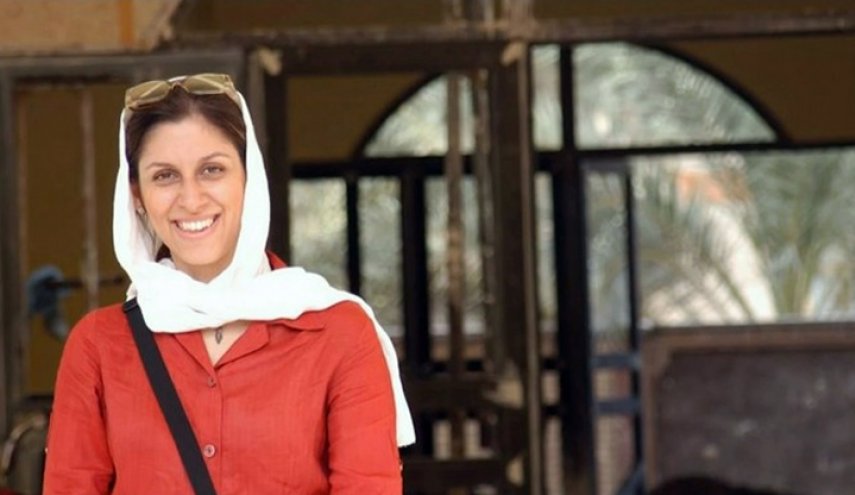
Two days after presence of Nazanin Zaghari Ratcliffe, Iranian-British citizen, in a court in Tehran, her family and Iranian judiciary officials have made different remarks in this regard.
Richard-Ratcliffe, her husband, issued a statement saying that on May 18, Nazanin had been taken to the court and faced new accusations there. Meanwhile Mizan news agency, affiliated with Iran’s judiciary branch, claims that even though Nazanin Zagheri Ratclif had gone to the court, no charges were pressed against her as her lawyer was absent.
Nazanin Zaghari-Ratcliffe, 39, has been sentenced to 5 years of imprisonment on espionage charges. Zaghari has been jailed in Iran since 2016. She was arrested at Tehran airport with her daughter. She has refused all charges.
BBC Persian
♦ 26 lawmakers give notice to Rouhani for inattention to protests of Kurd, Baloch in border regions
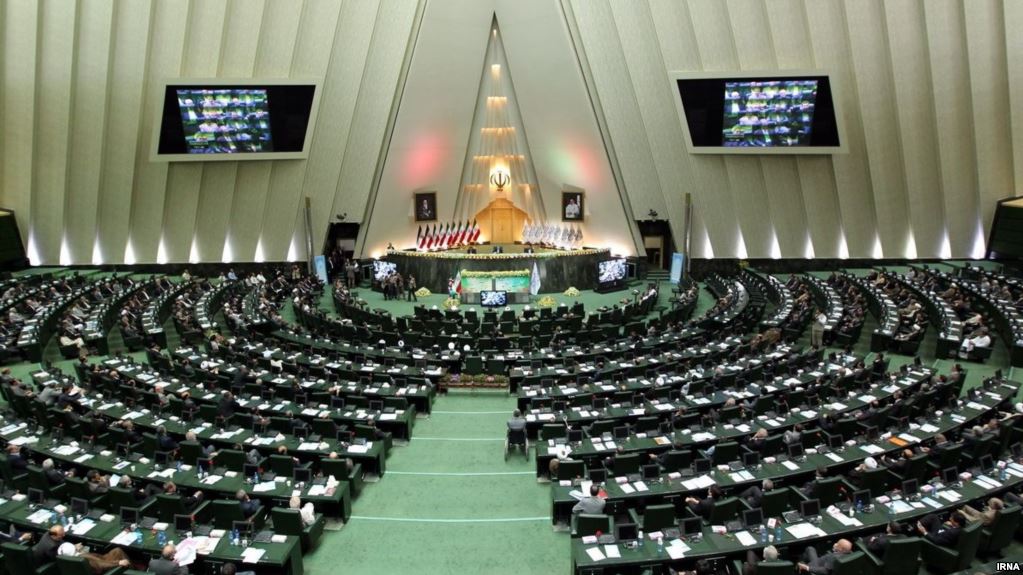
A number of MPs from Kurdish regions and Sistan and Baluchistan gave notice to the Iranian interior minister and president for Iranian government not paying attention to recent popular protests in border regions. The lawmakers have said, “no attention has been paid to widespread protests of people in Kurdish and Baloch cities with regard to closing border transactions in west and east of the country.”
As a result of restrictions imposed by the government on borders’ transactions and businesses with the beginning of the new Iranian year, there have been increase in costs of these transactions and unemployment of some actors in this field. Ensuing these restrictions, some workers in borders’ markets stopped working and launched a strike.
VOA Persian
♦ Iranians’ bank accounts in Georgia blocked

Georgia TBC Bank has recently issued a directive, making any banking transactions impossible for Iranians without residency card. According to Tiflis radio, currently accounts of those who previously had accounts in this bank and their residency cards are not ready yet have been blocked. Recently Georgia has make regulation for residency of foreign citizen tougher.
Asr Iran
♦ Biggest international shipping line halts activities with Iran

Maersk, the biggest shipping line in the world, says ensuing the U.S. pulling out of the JCPOA and return of sanctions against Iran, this company cannot have transaction with Iran. Soren Skou, CEO of Maersk, explained that given the U.S. new sanctions policy against Iran, if a company wants to be active in the U.S., it cannot cooperate with Iran.
A part of Iran’s import including foods and other consumable goods such as drugs takes place through sea and by companies like Maersk; as a result, refusal of international transportation companies to have transaction with Iran might face the country with difficulties in providing foods requirements.
Maersk had once stopped activities in Iran in 2012 when global sanctions regarding Iran’s nuclear program were imposed by Iran.
Radio Zamaneh
♦ Free trade zone of Iran and five countries of Eurasia
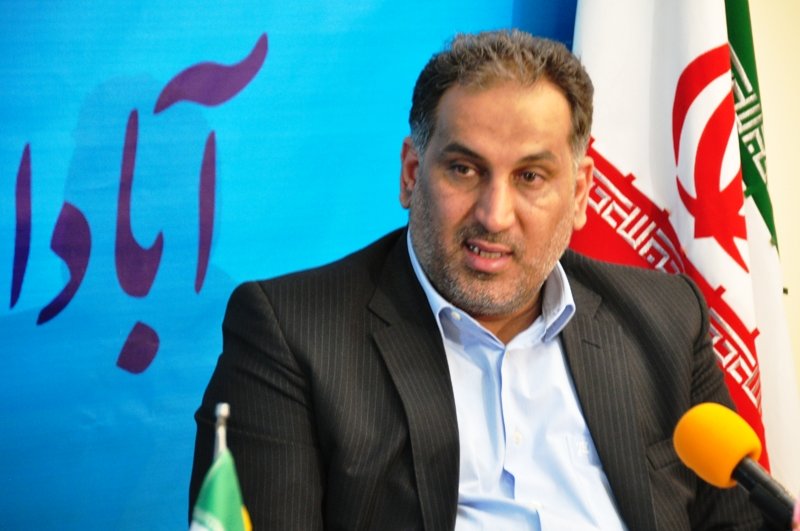
An agreement was signed between economic and parliamentarian delegation of Islamic Republic and five countries of Eurasia, said member of Economic Commission of the Parliament. Amer Kaabi added that Iran is trying to create a free trade zone with five countries of Eurasia consisting of Russia, Belorussia, Kazakhstan, Kyrgyzstan and Armenia to decrease tariffs for importing goods.
Young journalists club
♦ 120 German companies to continue activities in Iran
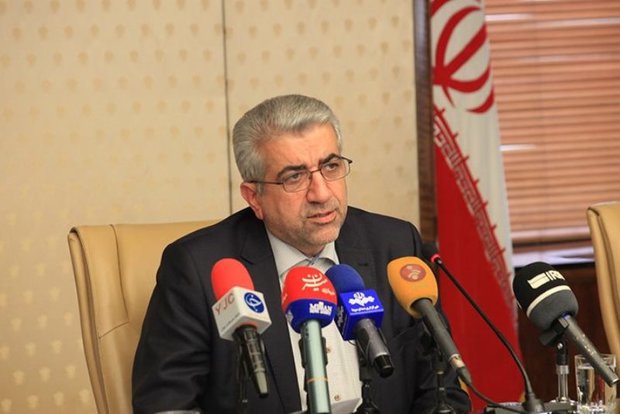
Iranian minister of energy said in his meeting with the German minister of economy and energy that 120 German companies will continue their activities in Iran, and Siemens too will stay committed to contract with Iran. Iranian Energy Minister Reza Ardakanian, who was in Germany on invitation by German environment minister and economy and energy minister, met with Peter Altmaier, German Economy and Energy Minister, to talk about ways for promoting bilateral relations.
Ardakanian said during this trip he has been assured of commitment of big German companies, including Siemens to fulfill their obligations within contracts with Iran.
Mehr news
♦ Kamalvandi: Banking transaction channel to establish between Iran and Europe
Europe is after creating channels for banking transaction with Iran regardless of the U.S. sanctions, said Behrooz Kamalvandi, spokesperson of Atomic Energy Organization of Iran. Europeans are trying to establish these channels by August 8, before the U.S. sanctions are enforced, added Kamalvandi.
According to spokesperson of Atomic Energy Organization of Iran, companies can use these channels to continue their activities in Iran regardless of transregional sanctions.
Khabar online
♦ Legislation for resuming nuclear activities
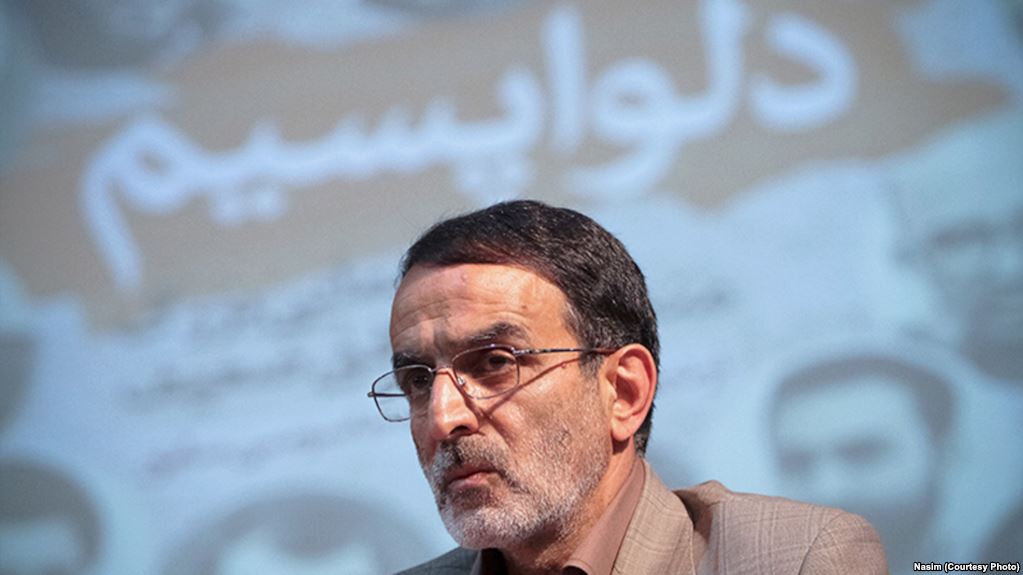
70 Iranian parliamentarians are preparing a double priority legislation for resuming the nuclear activities in Iran in case talks with Europeans are to no avail. According to Javad Karimi Ghodoosi, member of National Security and Foreign Policy Commission, MPs have prepared a legislation for restarting the nuclear activities if negotiations with Europeans regarding the JCPOA are not fruitful within a month.
Following the U.S. withdrawal from the JCPOA, Iran has started talks with Europeans regarding how to preserve the JCPOA without the U.S.
Arman Emrooz
